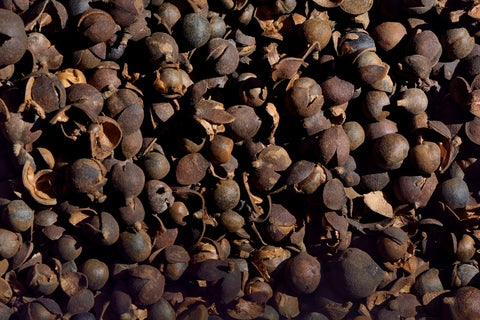Food and Health

Rice Selection – Which Is The Best?
When it comes to choosing rice, there is usually a question between white or brown rice.
Leer más
7 Facts About The Effects Of Carica Papaya On Your Body
Written By Scott Matthews / Reviewed By Ray Spotts It’s not easy to find someone putting papaya in a grocery cart. Most people don’t like it simply because it does not please the palette like other...
Leer más
Food News: Can Eating Blueberries Every Day Improve Heart Health?
Reviewed By Ray SpottsResearchers wanted to see if eating blueberries had any effect on metabolic syndrome - which affects one-third of Westernized adults. Eating 150 grams of blueberries daily red...
Leer más
Hunger Of Seniors An Area Of Concern
Reviewed By Ray Spotts Food insecurity remains a serious problem for many older adults. The number of seniors facing the threat of hunger is steadily growing in the United States. Food insecurit...
Leer más
The Positive Effects Of Matcha Tea You Didn’t Know About
Matcha tea isn’t a new fad. But do you know all the benefits of this powerful tea? Learn now four key things that will make you want to drink more Matcha.
Leer más
How Can Frozen Fruits And Vegetables Make You Healthier And Save On Grocery Costs?
Reviewed By Ray Spotts "Fresh is best" is a motto for many health buffs, but recent research indicates that in some cases, frozen fruit has a higher health quotient. This is the case for fruits li...
Leer más
Improve Blood Lipid Profile With Camelina Oil
Reviewed by: Ray Spotts A lesser known oil has been found to improve the overall makeup of the blood. While oils such as chamomile, lavender, avocado, and tea tree are more commonly known with many...
Leer más
Link Between Eating Vegetables And Slower Rate Of Brain Aging
At least one serving of green, leafy vegetables per day slows the decline rate on tests of memory and thinking skills compared to those who rarely eat vegetables.
Leer más
Food Labels And Their Effects On Consumption And Product Formulation
Reviewed By Ray SpottsOver the past two decades, labels such as the U.S. Nutrition Facts Panel on packaged foods, calorie counts on national restaurant menus, front-of-pack labels encouraging healt...
Leer más
Knowing The Carbon Footprint Of Your Food Choices
Reviewed By Ray Spotts Climate change is a well-debated topic these days and with that in mind, many shoppers underestimate the difference their food choices make to the so-called climate change t...
Leer más




